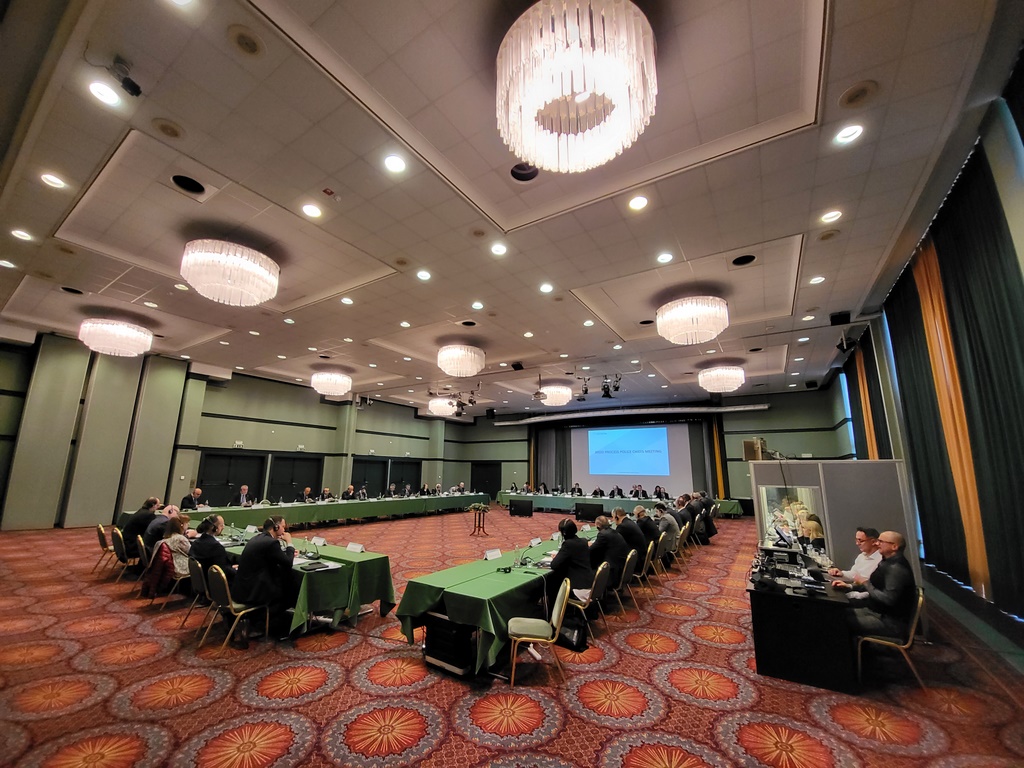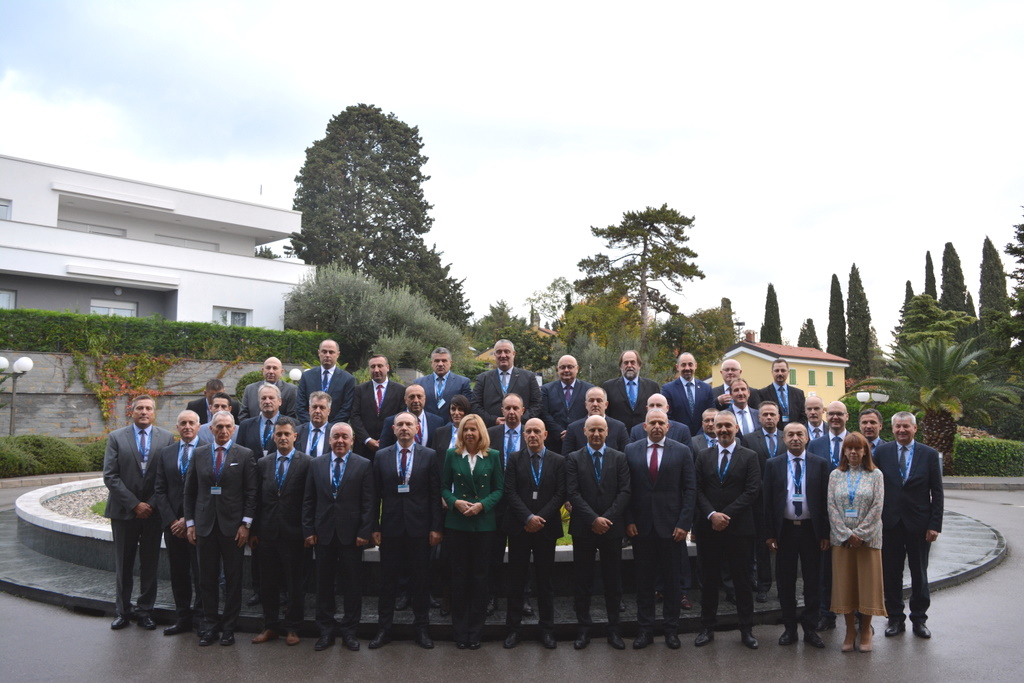Police Chiefs met at the international conference in Portorož on 17 and 18 November 2022, and discussed the stepping-up of information exchange and police cooperation in the region for the purpose of prevention of organised crime and dismantling of the highly profitable illicit business model of the criminal networks.
Cooperation between countries is a precondition for efficient prevention of irregular migration and the Ministry of the Interior and Slovenian Police have dedicated the recent months to collaborating with the countries on the Western Balkans route and all its neighbour countries, stepping-up international cooperation.
The international conference of police chiefs, which was attended by directors general of the police from Slovenia, Serbia, Croatia, Bosnia and Herzegovina, Montenegro, Macedonia, Kosovo, Austria, Italy and Hungary was inaugurated by the Minister of the Interior Tatjana Bobnar. They were joined by representatives of the European Union's law enforcement agency (Europol), European Border and Coastal Guard Agency (Frontex) and the Geneva Centre for Democratic Control of Armed Forces (DCAF)
Since March this year, the migration wave in the Western Balkans has been on the rise, especially on the route from Serbia through Hungary towards Austria and other EU member states. Part of this wave also passes through Bosnia and Herzegovina, Croatia, Slovenia and onwards. Slovenia is a transit country, where migrants do not tend to remain long.
"Ever since the beginning, we have been very active in our international cooperation, which is essential for migration management and control," Slovenian Minister said. The Ministry and the Police leaderships both held several bilateral meetings in the recent weeks and months. The police leadership also regularly convenes and collaborates operationally with the leaderships of the neighbouring countries Croatia, Italy, Austria, Hungary and more remotely of Bosnia and Herzegovina and Serbia.
The Minister also explained that we have been noting an increase in illegal border crossings by nationals of countries, which had previously not been detected as countries of origin, namely Burundi, India and Cuba. As a result, Slovenia recently sent a proposal to the European Commission for the Western Balkan countries to harmonise their visa liberalisation regime with the Visa regime of the European Union. "Serbia has already done so for the citizens of Burundi and Tunisia in late October. On the operational level, we are already seeing a smaller number of illegal border crossings by these citizens," Minister of the Interior Tatjana Bobnar informed, adding that another proposal for the European Commission to do everything it can in terms of development aid, respect of human rights and prevention of people smuggling in the countries of origin has also been made.
"Today's conference is but one of the several activities Slovenia, or the Slovenian Ministry of the Interior and the Slovenian police have been pursuing. I would like to underline that both, the Ministry of the Interior and the Slovenian police follow the migration situation daily, adjusting the activities and tasks accordingly. The accelerated international cooperation falls under one of these tasks," Bobnar said, adding "today's meeting of the police directors general, which we announced some weeks ago and is taking place in Portorož today, is dedicated to the topic of immediate exchange of operational data between polices of individual countries with the focus on prevention of people smuggling."
In the meantime, the Acting Director General of the Police Boštjan Lindav stressed that organised criminal groups have an important impact on the phenomenon of migration by playing a large role in the smuggling of migrants and refugees from the crisis regions along the entire Wester Balkans route to the destination countries: "They are also taking advantage of the vulnerability of the people, who for one reason or another decided to take this difficult journey, exploiting them financially and turning large profits in the process. The purpose of today's conference is to formulate a concrete initiative on how to appoint contact points and the network of contact points in the Western Balkan region, to exchange data on the activities of organised criminal groups. We believe that this can improve and increase the efficiency of policing in this field across the entire region, which will – we hope and believe so – later reflect in better security situation in the region.
"I am very happy that directors general of the polices have responded in such great number, which shows that we are all aware of the seriousness of this issue and willing to find joint solutions, putting us on the right way to success. We shall all continue working on this and all – each and every one of us – continue to provide high level of security for all the citizens in the region," Lindav concluded.






